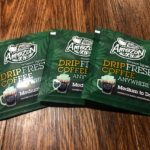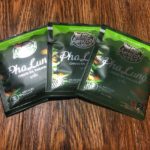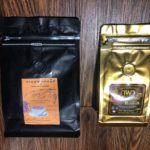
Is Civet Coffee the Best Coffee in Thailand?
- Thai Coffee
-
Dec 17
- Share post
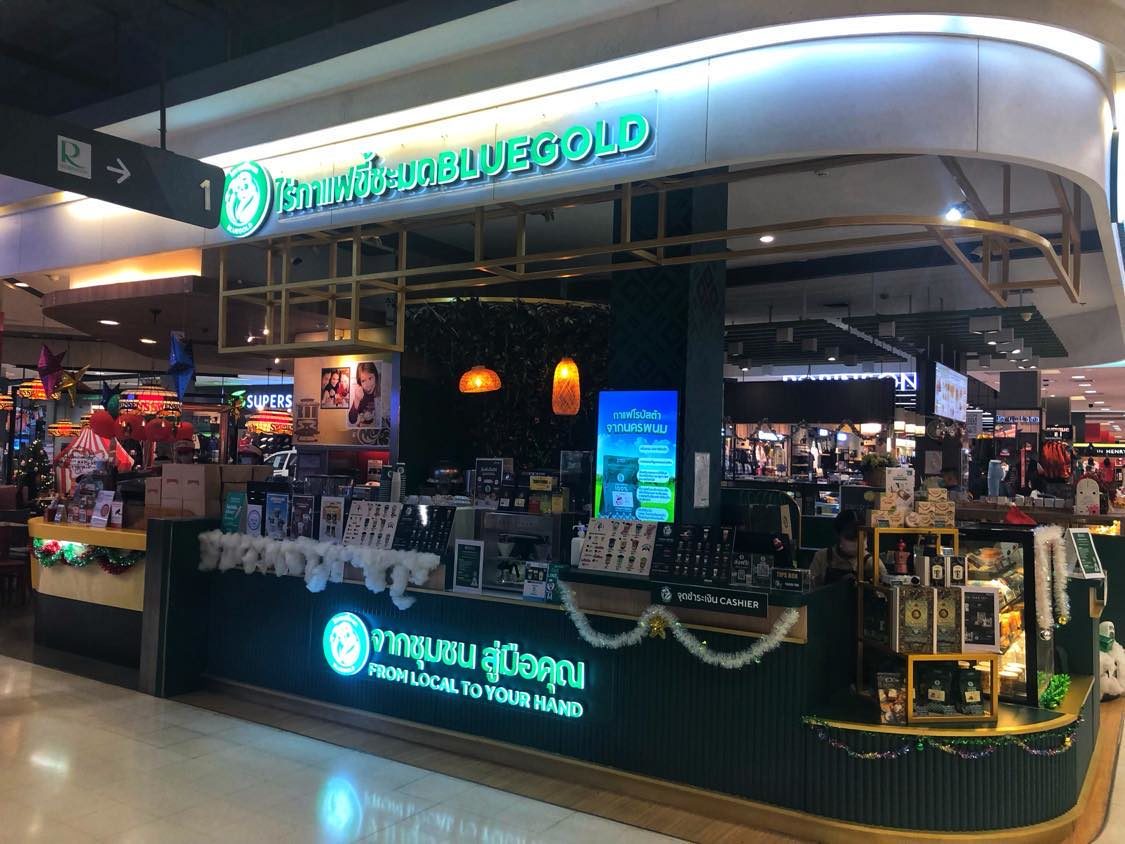
In our search for the best coffee in Thailand, we now review a premium civet coffee made by Bluegold — a popular Thai coffee company founded in 2013 by young entrepreneur Kiattisak Khamwongsa of Nakhon Phanom (a Northeastern Thailand province that borders Sakon Nakhon and Laos).
The first Bluegold civet coffee plantation in Thailand began on 10 rai in the Na Duang District of Loei Province, expanding later to 400 rai. Eventually a 2nd plantation was established in the Phon Sawan District of Nakhon Phanom. Khun Kiattisak has been diligent in cultivating his civet coffee plantation in an eco-friendly way by using organic fertilizers, and taking proper care of the health and well-being of the civet cats, which now number over 400.
Bluegold’s made-in-Thailand civet coffee is sold for both domestic Thai consumption and for export. It’s sold at Bluegold cafes, as well as online to Thai civet coffee enthusiasts, many of whom order the coffee along with a stove-top moka pot. A moka pot brews coffee by passing boiling water pressurized by steam through ground coffee. It is said that this is the best method for bringing out the flavor and aroma of civet coffee.
Most Thais who are familiar with Bluegold civet coffee know the brand because of their cafes. Bluegold coffee shops can often be found in Robinson Lifestyle Malls, such as the one we have here in Sakon Nakhon. However, many upcountry Thais don’t actually know how civet coffee is made. That is, they don’t know that Bluegold sells coffee made from coffee beans pooped out from the civet cat, but think that the civet cat is merely a mascot.
So, we should explain what civet coffee is. Civet coffee is also known as Kopi Luwak, and it was first made in Indonesia. The civet cat eats the coffee cherries (beans) and then poops them out. These partially digested coffee beans are collected, cleaned, dried out, processed, and eventually roasted as ordinary coffee beans are.
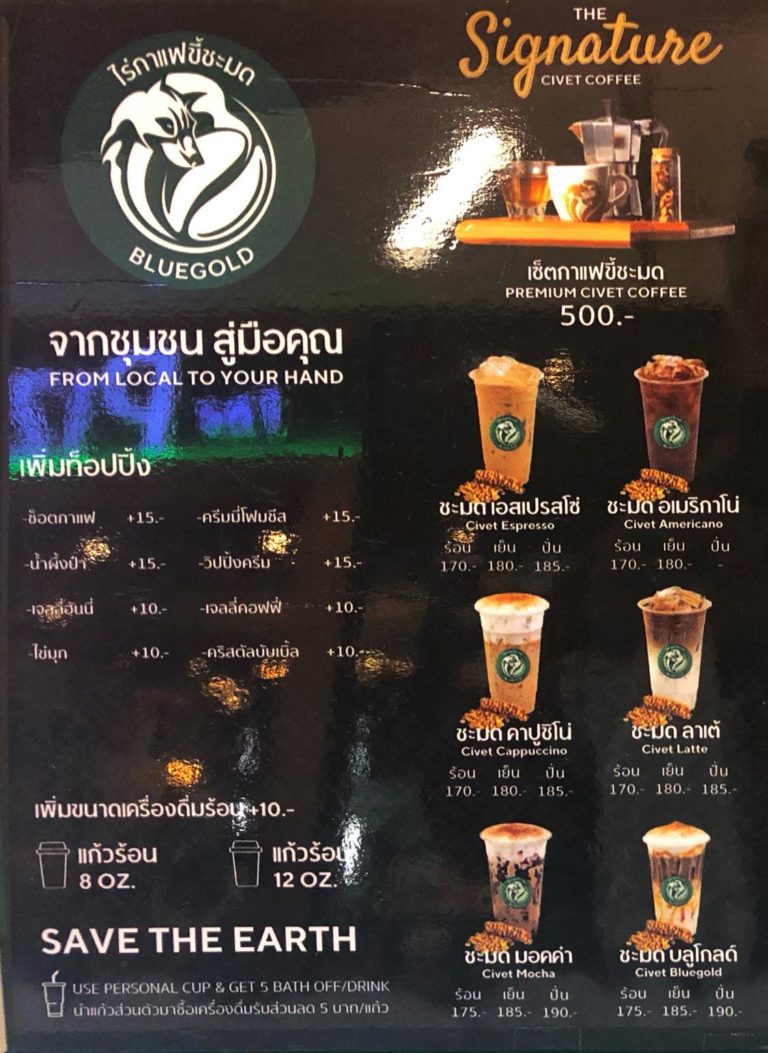
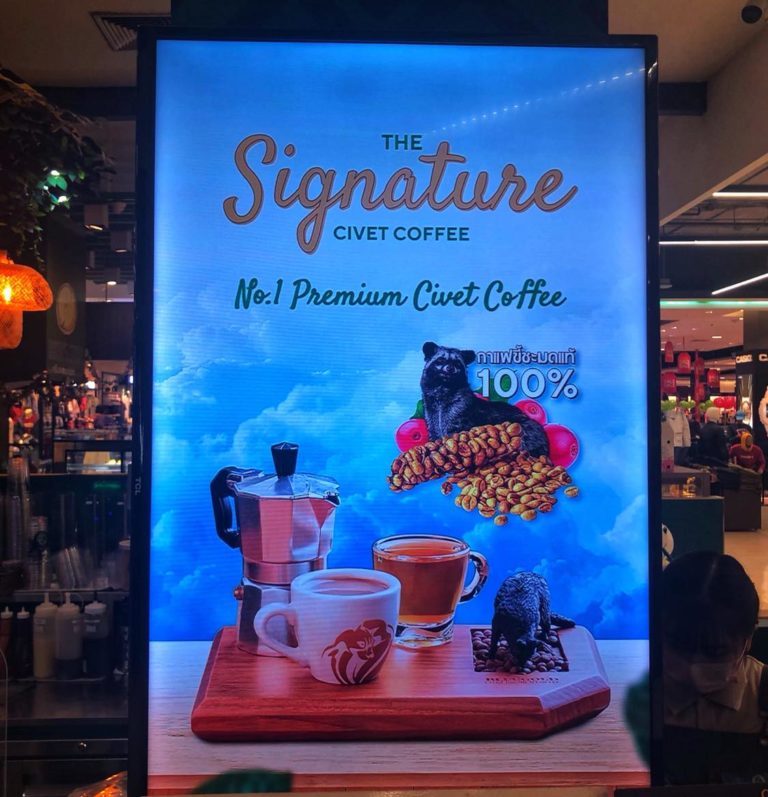
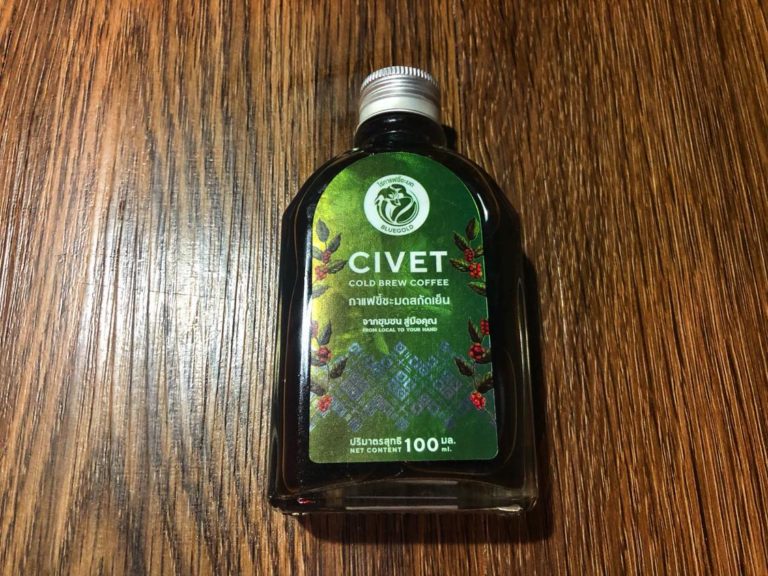
Civet coffee is one of the most expensive in the world, and while Thailand’s civet coffee by Bluegold isn’t as expensive as civet coffee in Western countries, it is still a pricey cup at 500 baht (moka pot brewed at their cafe), or 250 baht for single serving (7 gram) bag of civet coffee beans. A cheaper cold brew variation can be bought for 79 baht a bottle, or you can buy a civet coffee drink (such as a Civet Latte or Civet Mocha) at a Bluegold cafe for under 200 baht.
Thai Civet Coffee Taste Test Review
We tasted both a hot cup brewed from Bluegold’s civet coffee beans and their cold brew civet coffee in a bottle. Bluegold refers to the coffee as a blend, but does not identify whether it is an Arabica or Robusta bean blend (or a mixture of the two). The only Thai coffee we see them selling from their plantations that is non-civet coffee is a Robusta bean coffee. So, our guess is that their civet coffee is a Robusta blend grown at their plantations in Nakhon Phanom and Loei.
Bluegold’s civet coffee was the least bitter Thai coffee we have tasted to date. It would thus be a good coffee for people who don’t often drink coffee because it is too bitter. Not only was the civet coffee less bitter, but it also seemed to have less flavor complexity, compared to the other Thai coffees that we have reviewed. It was a smooth coffee with a clean finish (with no aftertaste), but the only subtle flavor notes we tasted were very slight undertones of unsweetened cocoa and raw honey. Overall, it was a pleasant coffee, but we tend to like our coffees with a stronger flavor profile.
It is worth noting, however, that we did not make the civet coffee with a moka pot (which Bluegold says is the best way to make it). So, perhaps we would change our minds if we splurged for the 500 baht moka pot brewed version they make at their cafe. Maybe then we would rate it as the best coffee in Thailand. If we ever decide to try that, we will update this review and let you know.
Lastly, there is another company which makes civet coffee in Thailand. Doi Chang Coffee in Chiang Rai produces wild civet coffee, and we hope to review that coffee in the future. To read all of our coffee reviews in Thailand, please visit: Thai Coffee Reviews.
- Affirmations in Buddhism & Thailand - June 7, 2025
- Speak Thai Naturally Without the Gymnastics - April 20, 2025
- The Best Learn Thai Podcast and YouTube Channel - April 10, 2025

